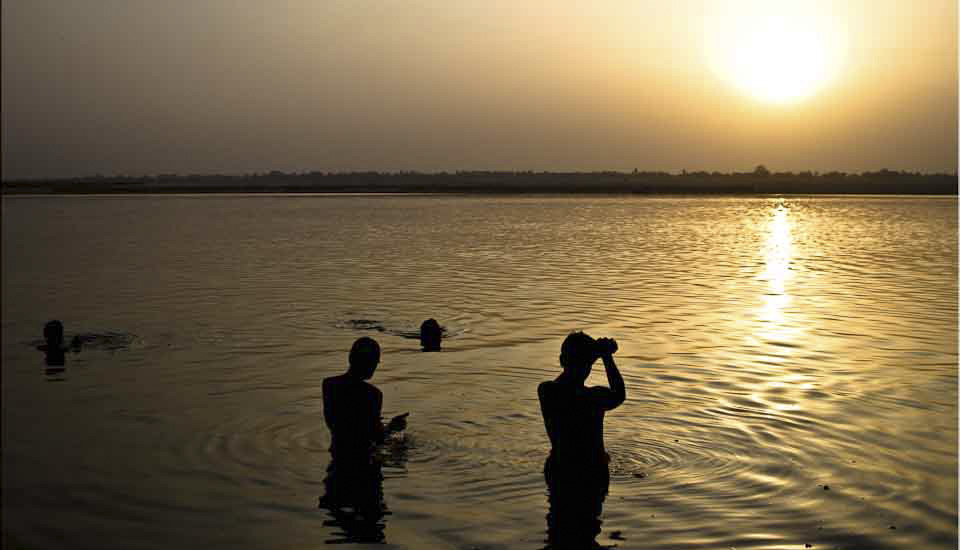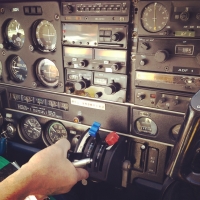.jpg)
The Dryad Point Lighthouse
Even on a cold and rainy spring day, the scenery is spectacular from the BC Ferry that winds up the channels between Port Hardy on Vancouver Island and Prince Rupert on Canada’s mainland.
A boat trip up the Inside Passage has been on my Bucket List since I was a working student in the 70s when it was well out of my price-point. This classic trip – from Seattle or Vancouver to Juneau or Skagway in Alaska – is known for its magnificent scenery.
And it remains elusive to me.
A few years ago, I thought I was making my last trip back to Canada. To make myself feel better about that prospect, I toyed with variations of that iconic cruise only to find that – if I was being remotely sensible – they were still outside my reach!
So, I settled on the next-best-thing: a BC Ferry trip up the Canadian portion of this inimitable waterway.
British Columbia (BC) in Canada’s west has a coastline that is punctuated by over 40,000 islands of varying sizes, and deeply incised by coves, rivers, and fjords that rival those of Norway. Much of the landscape is mountainous and covered in dense temperate rainforest. The traditional inhabitants, the Coastal Salish nations, typically built their villages near navigable waterways for easy transportation, and they relied on seaworthy canoes for much of their daily activity.
Even today, a lot of the province is only accessible by water.
The BC Ferries was founded in 1960 to act as an extension of the public road system. The federal and provincial governments subsidized the organisation to provide essential services between the BC mainland, the coastal islands, and parts of the mainland with no road access. Today, it operates as an independently managed, publicly owned Canadian company – with the provincial Crown as sole shareholder.
The deep and sheltered waterways of the Inside Passage provide a shipping lane protected from the rough waters and bad weather typical of the open North Pacific. This maritime route is heavily trafficked by all manner of marine vessels, including pleasure boats, working boats, cruise ships, cargo ships, and – of course – ferries, that service major and minor routes all along the coast. The magical and poignant book: Passage to Juneau: A Sea and Its Meanings, by British travel writer and playwright Jonathan Raban, offers a unique insight into the history and landscape of these waters.
The BC Ferries operate a regular service between Port Hardy (see: The Fort Rupert Trail) on the northern tip of Vancouver Island and Prince Rupert on the northwest coast of the British Columbia mainland.
I duly booked passage for myself and my rental car, and set off north.
.jpg)
In the Bear Cove Terminal
The very modern-looking ferry takes about 16 hours to wind its way up to its final destination – and cars are expected to present themselves between 120 and 90 minutes before sailing. So, it’s an early morning start on a long day – and it is raining! (iPhone12Pro)
.jpg)
Lifeboat
The Northern Expedition ferry was built in 2004. She can take a maximum of 87 cars and 640 people – including crew. It pays to book ahead!

Front Row Seats
Cabins are available onboard, but I booked myself a seat in the lounge instead. That way I could wander freely without too much concern for my belongings, or just sit and enjoy the view.

BC Ferries Flag on the Prow
Of course, the view was mostly rain and mist …

Nature’s Abstracts
… and stretches of calm water.

Into the Mist

Addenbroke Island Lightstation on Fitz Hugh Sound
The passage is not without hazards, and cheerfully picturesque lighthouses punctuate the trees. What a solitary life this must be!

Disney Wonder
A much bigger ship than ours passes to our port, heading south.

Radar and Flags

Islands in the Clouds

Seaforth Channel Marker
On the rocks off Denny Island, a marker signals the safe path.

McLoughlin Bay Terminal
On the other side of the channel, we make a short stop on Campbell Island, just south of the community of Bella Bella/Waglisla, to exchange goods and passengers.

Bella Bella
The candy-coloured houses of Bella Bella stretch out along the channel.

Working Boat on Seaforth Channel
Once home to a Hudson Bay fort, Methodist missionaries, and a thriving cannery, today the predominantly Heiltsuk First Nation community of Bella Bella has a precarious and relatively isolated existence.

Dryad Point Lighthouse
Towards the top of Campbell Island, the heritage-listed lighthouse signals our sharp turn from Seaforth Channel into Lama Passage.

Boat Bluff Lighthouse
A couple of hours later, we are passing what is one of the rainiest places in Canada: the heritage-listed lighthouse on Boat Bluff on Sarah Island.

Butedale
With a snow-dusted mountain behind, the impressive Butedale Falls on Princess Royal Island flow into Hecate Strait. Ruins of the ghost-town of Butedale, founded in 1918 as a fishing, mining, and logging camp, are nearby.

Another Waterfall

Misty Mountains
The weather remains wet, windy, and cold, and I spend a lot of time sheltering behind wet windows. (iPhone12Pro)

Flying the Flag

Fading Layers
The day grows long, and many mountainous islands fall behind us.

Catching Clouds
Mists continue to gather in the tall trees …

In our Wake
… and our wake marks a trail through snow-caps and rain clouds.

Almost Abstract: Misty Mountains
(iPhone12Pro)

Night Lights – City Limits
At 11:30PM, we finally sight the welcoming lights on the Port of Prince Rupert. This is the deepest ice-free natural harbour in North America, and the third deepest natural harbour in the world – making it a very busy place. (iPhone12Pro)
I finally reached my room at just before midnight, very ready to lie down.
What magnificent scenery! What lousy weather! I decided to try the trip again, the next year, with fingers crossed for better weather.

Until then,
Safe Sailing!
Pictures: 05June2022































.png)

